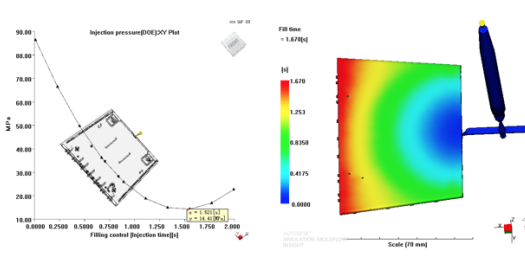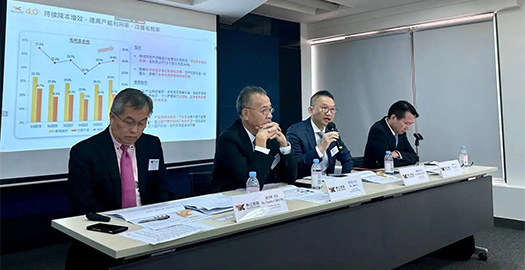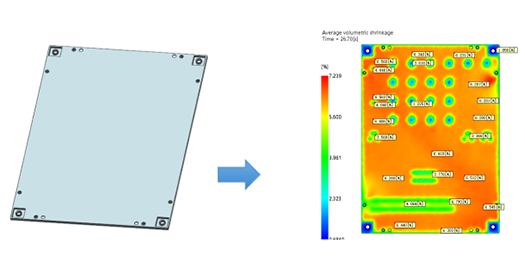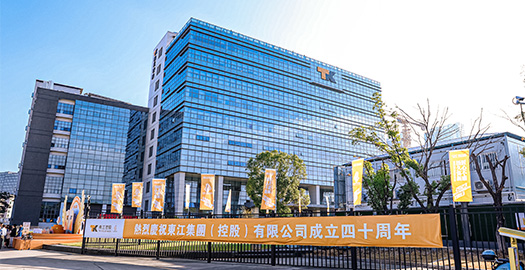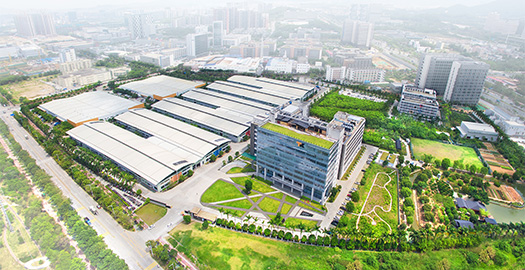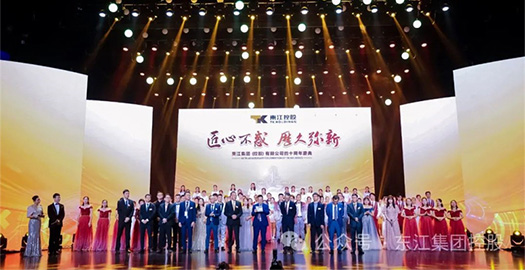Hong Kong Main
Board Listing
Stock Code: 2283
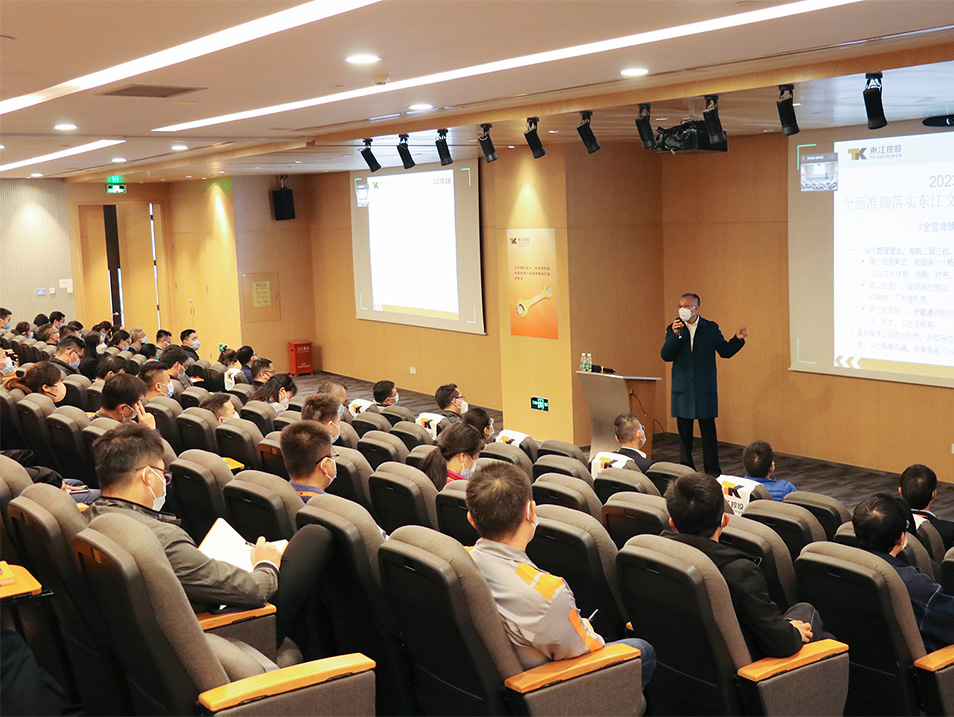
On December 9, 2022, TK Holdings' 2023 Strategy Conference was held in the first-floor conference hall of Building J. Senior executives attending included Mr. Li Pui Leung, Chairman of TK Group (Holdings), Mr. Yung Kin Cheung Michael, Chief Executive Officer, Mr. Li Leung Yiu, Director, Mr. Yue Yiu Chung, Group Financial Controller, Mr. Lu Gong Shan, General Manager of TK Mold, Mr. Yim Cham Sum, General Manager of TK Precision, Mr. Fang Chenglin, Group HR Director, Mr. Yung Kin Kei, Facility Planning Manager, and Mr. Huang Hui, Operations Director of TK Mold. Department heads and employee representatives also attended, with colleagues from East China Business Division, Huizhou Business Division, TK Techco, and Vietnam Business Division joining via video link to discuss the Group's strategy and development for the coming year.

Mr. Li Pui Leung, Chairman of TK Holdings, first expressed the Board's gratitude to all TK employees for their achievements in improving company management and sales performance over the past year. He then introduced the Group's 2023 development strategy of "Comprehensive Implementation of TK Culture, Collective Development Through Shared Wisdom." Mr. Li noted that as the ancient saying goes, "At thirty, one stands firm; at forty, one has no doubts." If TK's official listing in the capital market in 2013 marked its international independence, then approaching its fortieth anniversary today, the Group should have clear understanding and direction about what to do and how to do it. The Group's achievements today are inseparable from the pioneering efforts and hard work of TK's entrepreneurs, and even more closely tied to the TK culture that all employees have cultivated, verified, and refined over decades through practical efforts. While the future society holds both crises and opportunities, thoroughly implementing TK culture will enable us to overcome difficulties and achieve victory.
Mr. Li emphasized two key points for comprehensively implementing TK culture: First, deepening management philosophy through the "233" system (dual-track, three-layer, three-transformation), clarifying governance responsibilities across three layers to achieve scale without inefficiency. The first layer is the Group level, establishing systems and processes around a central core, including corporate culture, strategy, finance, and internal audit. The second layer is the factory level, implementing flexible systems and processes adapted to local conditions, covering business operations, organizational structure, and compensation. The third layer is the departmental level, developing agile processes grounded in practical operations, including production, technology, and workflow. This clarification of responsibilities at all three levels promotes efficient top-down process simplification and direct communication with fewer meetings. Second, strengthening operational philosophy for mutual development and improvement, creating a strong chain where each link is tightly connected to the next. This means maintaining close relationships with clients to solve their problems while simultaneously working closely with suppliers to meet client needs collectively.
Collective development requires extending TK's value chain in pursuit of the five-year plan. Different businesses have different purposes, functions, and management focuses: Seed businesses aim to secure future success. Their key indicators focus on budget control and phased achievements. The management emphasis is on encouraging creative freedom and bold initiatives. Growth businesses focus on product iteration and sustainable development. Their key indicators are sales, gross profit, and net profit. The management emphasis is on concentrated attention and careful nurturing. Core businesses aim to create value and establish solid foundations. Their key indicators include sales, gross profit, net profit, accounts receivable, accounts payable, and VAR per capita. The management emphasis is on empowering Business Units while maintaining coordination.
In 2023, we will implement TK culture, clarify three-layer governance responsibilities, delegate authority systematically to accelerate progress toward our five-year plan and embrace new opportunities and challenges.
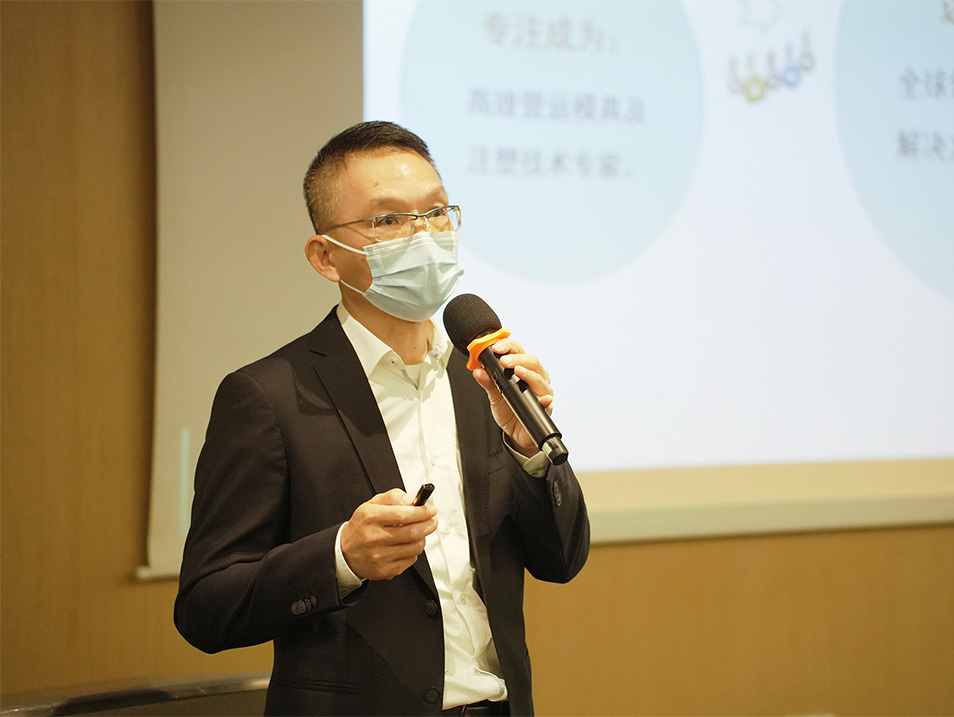
Subsequently, Chief Executive Officer Mr. Yung Kin Cheung Michael explained the Group's 2023 business development guidelines. He first reaffirmed that TK's overall business development direction and goal remain focused on becoming an expert in efficient mold operations and injection molding technology, ultimately becoming a global leader in one-stop injection molding solutions. The Group's medium-term business target (2021-2025) is to "double the Group's business in five years." Due to various factors, 2021-2022 performance fell short of estimates. Beyond objective factors such as the COVID-19 pandemic and US-China trade tensions, the company has reviewed management issues from recent years and will work to narrow the gap in the five-year plan through 2023's strategic deployment and business growth.
Regarding the Group's 2023 strategy of "Comprehensive Implementation of TK Culture, Collective Development Through Shared Wisdom," Mr. Yung outlined the Group's strategic development approach as "Stabilize Core, Promote Growth, Nurture Seeds": implementing refined three-layer business management with clear targets and precise resource allocation; promoting growth in existing growth businesses to drive overall Group growth; and improving core business key account management to enhance operational efficiency.
Mr. Yung elaborated that the company has always maintained a three-layer business development approach, categorizing operations into core, growth, and seed businesses. The Plastic Components' core businesses include high-efficiency injection molding (particularly in consumer electronics), special injection molding, HCT, and operations in East China 1 and Huizhou. Growth businesses, developed over recent years, include MDT, TK Techco LSR, the newly operational Vietnam business, and the East China 2 business requiring increased investment. Seed businesses include printed antenna operations, assembly operations, and electronic vaporizer finished products. For the Mold Fabrication, core businesses comprise standard operations and precision operations in healthcare, industrial, and automotive sectors. Growth businesses include medical and packaging operations. Seed businesses encompass specialized technologies in standard operations, specific precision products such as medical pipettes and syringes, and value chain extensions like automation and comprehensive solutions. The three business layers have distinct development directions and priorities: Core businesses are the main profit source, focusing on maintaining advantages and operational efficiency; growth businesses are future profit sources, emphasizing competitive advantages and sales growth; seed businesses create future opportunities through exploration, focusing on phased achievements. Each business type requires different resources, processes, structures, culture, and incentives with distinct management approaches.
Additionally, Mr. Yung outlined seven key focus areas: 1. Strategic Management: Establishing a strategic management committee to promote Group strategy development and execution; improving strategic execution and management mechanisms in both divisions. 2. Three-layer Business: Developing management models with reviews of operational targets, resource allocation, incentive policies, and management processes. 3. Industry 4.0: Deepening implementation, promoting data analysis and application, streamlining management processes; pursuing "Lighthouse Factory" status and certification possibilities. 4. Overseas Sales: Perfecting and activating overseas sales networks. 5. TKP/TKM Synergy: Coordinating business and resources between divisions, leveraging TKM's precision marketing in medical/packaging injection molding. 6. Supply Chain Management: Enhancing systematic and strategic supply chain management to support business development strategy. 7. Agile Organization and OKR: Implementing OKR in strategic management; applying agile project teams to management improvement initiatives.
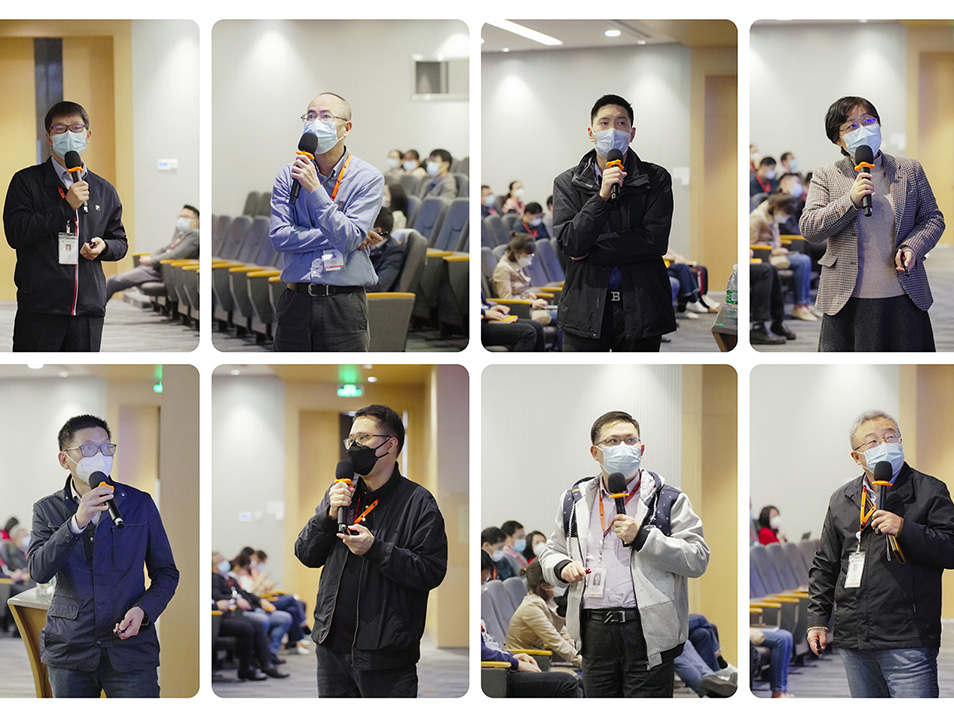
Subsequently, department heads from TKM, TKP, TKA, Internal Audit, External Affairs/Union, and Facility Planning shared their 2023 strategies and key initiatives, breaking down objectives and coordinating efforts to achieve the Group's 2023 strategy. Through this cascade of strategic decomposition, everyone gained deeper understanding of TK Group's 2023 strategy and key initiatives. Finally, regarding COVID-19, Mr. Li advocated for "not seeking to avoid infection entirely, but rather delaying it and minimizing its impact." The next two to three months may see peak infections, with infection rates potentially reaching 70-80% during the first wave before gradually stabilizing. Having endured three years, he hoped everyone could persevere for two more months until after the Spring Festival infection peak subsides and transmission rates decrease, allowing TK to safely reopen. Meanwhile, all TK employees should prioritize their health protection.
As TK approaches its fortieth anniversary next year, implementing the Group's 2023 strategy is a significant undertaking. Full employee participation in strategy implementation requires accurate implementation of TK culture, clear three-layer governance responsibilities, and strengthened refined management of three-layer businesses to seize opportunities and move forward. May our passion never age and our original aspirations remain unchanged as TK advances toward an even brighter tomorrow!
